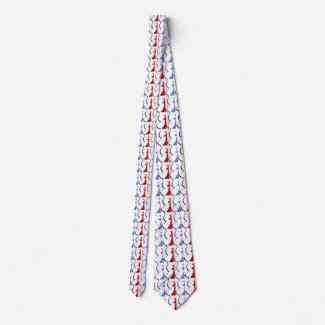* Home
|
- Overview
See also
* Casino-Hotel Profiles * Bally's * Borgata * Caesars * Golden Nugget * Hard Rock * Harrah's * Ocean Resort * Resorts * Tropicana On May 14, 2018, the US Supreme Court issued its decision in the case of Murphy v. National Collegiate Athletic Association in which it held that a federal law enacted in 1992--the Professional and Amateur Sports Protection Act (PASPA) which essentially limited sports betting to Nevada--was unconstitutional. In a 6-3 decision, the Court's majority opinion written by Justice Samuel Alito, Jr., (a New Jersey native), found that the 1992 law violated the 10th Amendment, which defines the relationship between the federal and state governments, by ordering the states to take certain actions beyond the scope of federal authority. “Congress can regulate sports gambling directly," Justice Alito wrote, "but if it elects not to do so, each State is free to act on its own. Our job is to interpret the law Congress has enacted and decide whether it is consistent with the Constitution. PASPA is not.” The Court's decision dismissed a lawsuit brought by five sports leagues, including the National Collegiate Athletic Association, to enjoin the implementation of the New Jersey sports gambling law which the state had enacted in 2014. The case arose as a result of a series of actions by New Jersey--including a referendum, a constitutional amendment and subsequent legislation--to challenge the prohibition of sports gambling, which was viewed by the state's struggling casino and race track sectors as a key component of future growth. By January 2023, a total of 33 states offered some form of sports betting; 19 offered full mobile betting with multiple options, 4 had limited mobile betting options, and 9 had only in-person sportsbooks. One analyst estimated that annual US sports betting revenue could grow to $11.3 billion in 2025.. Shortly after the Supreme Court's action, which reversed lower federal court decisions against enforcement of the New Jersey law, New Jersey racetracks and casinos quickly began to obtain licenses to establish sports gambling operations at their facilities, as well as through online applications. During the first year of sports gambling, New Jersey recorded some $3 billion in sports bets, and in September 2021 New Jersey became the first state to record just over $1 billion in sports wagers for the month. More than 90% of the $1 billion in bets were placed online, according to the state Division of Gaming Enforcement, with nearly $93 million in wagers placed in person at New Jersey casinos and racetracks. . For the National Football League Superbowl played in February 2023, preliminary statistics reported by Atlantic City casinos and New Jersey racetracks totaled approximately $109 million, with a projected total sports wagering payout of $96.5 million, resulting in a win of $12.8 million for the 12 retail sports books and 27 sports wagering mobile applications. Of the $11 billion in sports bets at New Jersey’s casinos and horse tracks during 2022, the casinos, tracks and their online partners kept $726 million as revenue after paying off winning bets and other expenses. Despite the state's early start, new competition soon emerged from other states. In January 2022, for example, New York State commenced sports gambling, which quickly surged to overtake New Jersey in betting handle and revenue, New York ended its first year of legal sports betting by setting an all-time annual handle record of $16.2 billion, easily surpassing the previous yearly high of $10.9 billion set by New Jersey in 2021. A total of 36 states have legalized sports gambling since 2018 and another three could approve it in 2023. According to the Division of Gaming Enforcement, New Jersey Sports Wagering Gross Revenue reported by casinos, racetracks, and their partners was $763 million for the 2022 calendar year, reflecting a 6.5% decline when compared to $815.8 million for the prior year period. Online sports betting made up 98% of New Jersey's gaming revenue in December 2022. Total Gaming Revenue, including in-person and online betting, reported by casinos, racetracks, and their partners was $5.21 billion, reflecting a 10% increase from $4.74 billion reported in the prior year. Since sports gambling was legalized in 2018, New Jersey bettors have bet $33.7 billion on sports—a total higher than even Nevada's $28 billion in the same time span and the highest of any state in the nation, according to Legalsportsreport.com, which tracks wagering around the country. Calls to the state’s gambling helpline have nearly tripled since 2018, reaching more than 27,000 last year, according to the Council on Compulsive Gambling, which some analysts attribute at least partly to a surge in sportsbook advertising. Sports books collect money from bettors who usually place wagers on single games or on longer-shot, but there are also higher-payout parlays, such as wagering on the team which will win the championship of major professional leagues at the end of the season. Bettors also can place bets on more specific outcomes, like how many complete games a pitcher will throw or touchdowns a quarterback will complete. The books make profits by taking in more in bets than they pay out in winnings. The odds of individual bets are representations of the probability that the event, such as a win or a loss, is likely to occur. Betting odds of 2/1 means that out of 3 possible outcomes, the 2/1 odds are that there will be 2 of one kind of outcome and 1 of another kind of outcome. or that for every 3 betting events the selection should win 1 times and on 2 occasions the selection will not win. The 2-1 betting odds probability is a 66.67% probability of a particular outcome and 33.34% probability of another outcome. For example. at odds of 2/1 a bettor wins $2 for every $1 bet. A $100 bet at 2/1 odds accordingly would win $200, for a total payout of $300. The amount by which the implied probability diverges from 100% is the margin the bookmaker has added to that particular wager, sometimes called the "vigorish,".“vig” or “juice”. A bet of $100 with odds of 2 to 1, for example, would return a winning payout of $200 before the bookmaker's margin is subtracted. Betting on a team at -150 odds implies that the bet has a 60% chance to win, and the bettor must risk $150 to win $100; at those odds, the bettor must win more than 60% of bets in order to make a profit. There are a wide variety of sports bets, including bets within a game such as a particular player hitting a home run, or one on a future outcome well in advance of any season. A $100 bet on Boston winning the World Series, for example, at the odds of +500 would win $500. Futures betting odds are continually adjusted as the team's performance affects the likelihood of the eventual result. Perhaps the most common sports bet is the so-called "money line" wagers placed on a game’s outcome on which team or competitor will win any given match. Since the bet is on who will win, usually with two teams or competitors, money line bets have only a couple of possible outcomes. Either the team selected will win, in which the bettor receives a payout on the odds or the team will lose, in which case the bet is lost. Some events, such as fights, may have a third possible bet option: a draw. The numbers such as +150 and -170 next to teams represent the money line payouts, which are related to the calculated odds. The negative number shows how much has to be risked to win a $100 payout. Thus, if the money line for the team picked was -400, it means that a successful $400 bet would receive $100 on payout, with the bettor having risked $400 to gain $100. The positive number shows how much would be gained on a successful $100 bet. A +300 money line, for example, reflects that a successful bet of $100 would win $300. A "point spread" bet considers not only which team wins but also by how much. In this sort of bet, the favorite has to win by a set amount of points, runs or more. The underdog team, in comparison, doesn’t have to win; it only has to lose by less than the spread. To manage risk, bookmakers use point spreads to evenly distribute bettors on both sides of a bet. Money lines and point spreads both base their payouts on the odds of a team winning or losing by accounting for the relative strength of each team or competitor. Money lines, however, change the amount charged for bets on a team, while point spreads change the team scores that would count as a win. According to some financial studies, the information in money line markets may be more precise than that in point spread markets. Another common wager is the "over/under", sometimes shortened as O/U, and sometimes called the "total". The sportsbook sets the line at the total number of points it believes will be scored by both teams collectively during the game. In this type of wager, it doesn’t matter which team scores the points and they can all be scored by one team or scored collectively by both. The number listed, such as 185 for a NBA pro basketball game, 9 for a baseball game, or 52 for an NFL football game, is the line for over/under bets. A bet on the over means the bettor believes both teams will combine to score more runs or points than the listed total. A bet on the under means the bettor feels the total will be less than the total listed. If the actual number equals the listed value, the bet is a "push", and all bets are refunded. . According to a research report, the weekly fantasy sports operators FanDuel and DraftKings are the industry leaders in total US market shares. Legacy casino companies, most notably MGM’s brand, BetMGM, and Caesars Casino & Sportsbook, also have grown rapidly. In April 2021, Caesars Entertainment announced completion of its acquisition of William Hill PLC, the veteran British-based bookmaking firm, for approximately $4 billion, with its intention to sell William Hill's non-US assets. With the acquisition, Caesars announced that it would be operational in over 20 US jurisdictions. * Murphy v. National Collegiate Athletic Association, Oyez.com * NJ Sports Wagering Law, P.L. 2018, c. 33 * Global Gaming Business Magazine * New York Sets All-Time State Sports Betting Handle Record of $16.2 Billion, 1/11/2023, Covers.com * Sports Wagering Gross Revenue Information, Division of Gaming Enforcement, NJ Department of Law & Public Safety * Center for Gaming Research, University of Nevada, Las Vegas * US Sports Betting Revenue & Handle, 1/20/2023, LegalSportsReport.com * NJ Sports Wagering Law, Division of Gaming Enforcement * NJ made itself a sports betting king. Gambling addiction is soaring, 1/20/2023, APP.com (subscription) * Council on Compulsive Gambling of New Jersey 800gambler.org * How To Bet 101: Sports Betting Explained, sportsbook.draftkings.com * Betting odds explained: How do odds work?, Pinnacle.com * Money Line Bet, Investopedia.com Governor Murphy places first legal sports bets in New Jersey on June 14, 2018 at the Monmouth Park Sports Book by placing two $20 bets, one on Germany to win the World Cup, and the other on the New Jersey Devils to win the Stanley Cup
LICENSED SPORTS GAMBLING -- Casino-Hotels
(Affiliation with Philadelphia's SugarHouse casino online sports betting through PlaySugarHouse.com; no betting on National Basketball Association games due to casino-hotel owner Tilman Fertitta's ownership of NBA's Houston Rockets)

-- Racetracks
Government
* Division of Gaming Enforcement, New Jersey Department of Law & Public Safety * Casino Control Commission, State of New Jersey * Casino Reinvestment Development Authority Media and reference * NJ Sports Betting, LegalSportsReport.com * NJGamblingWebsites.com * Legal US sports betting sites January 2023, LegalSportsReport.com * eGamingReview * Casino Association of New Jersey * CasinoConnectionAC.com * American Casino Guide, New Jersey Online Casinos
* Center for Gambling Studies, School of Social Work, Rutgers University |
Easter Sunday 1904 crowds on Atlantic City boardwalk in film by Thomas Edison
Postcard circa 1890 Image: NewJerseyAlmanac.com
|




